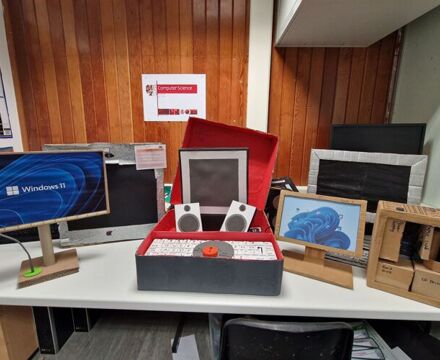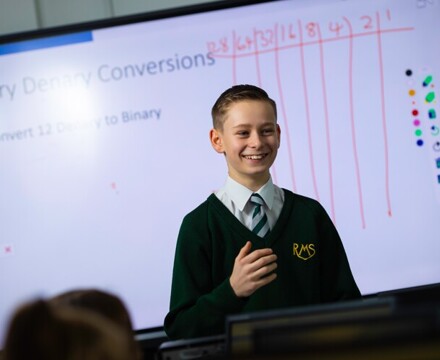- Home
- Curriculum
- Subjects
- Computer Science & IT
Computer Science & IT
Return to SubjectsGCSE Computer Science Revision Resources Website
KS3 Computer Science Homework / Prep Website
Head of Department:
Mrs Kavita Banga
Department aims:
Our students follow a learning journey that gives them access to an exciting mastery of computing concepts, embedded with diversity and ensuring inclusion. With this in mind, they learn real world topics linking to the National Curriculum in a mastery format, such as yearly escalated topics; esafety, computational thinking, digital tools, algorithms and programming.
We are living in an acutely digital age, where modern technologies and data driven identities are part of our learners’ everyday lives. Our vision is to ensure our children know that computing is an essential part of a well-rounded academic offering and prepares them to live and thrive in a world that is rapidly changing. With an understanding that computing acumen is achievable as well as fundamental in a wide range of career vocations. The overarching vision of the Computer Science Department is to transform users of technology into ethical creators of technology. Furthermore, by giving students the tools needed such as the Predict, Run, Investigate, Modify and Make (PRIMM – Sue Sentance) model to build lifelong resilience skills, working with enthusiasm independently, as well as in a team to solve a variety of real world problems.
Ethical Digital Literacy is our department’s priority, with our children developing an understanding of how to use computers safely and responsibly. With a strong sense of vocational opportunities for all learners.
Reading List:
- CGP GCSE OCR Computer Science Revision Guide and Exam Practice Workbook
- OCR endorsed textbooks
Useful weblinks:
BBC Bitesize - Computer Science Programming - Python Teach-ICT (ask for login details)
Extracurricular and enrichment:
- After-school Programming workshop to practise and develop their programming skills
- After-school Programming consolidation sessions for students in Years 10 & 11
- After-school revision programme leading up to the practice and external examinations for students in Year 11
| Subject Documents |
|---|
| Computer Science Business Curriculum Information |
| Learning Journey Computer Science |





